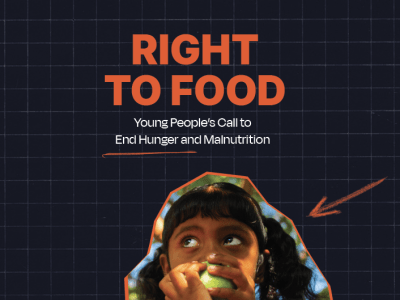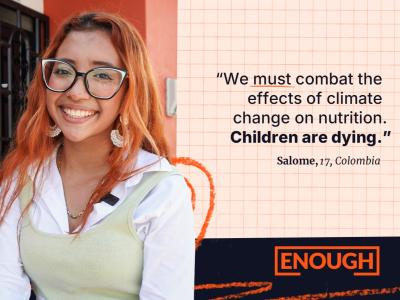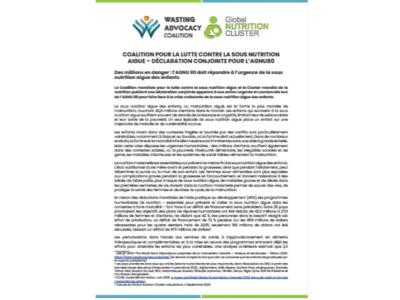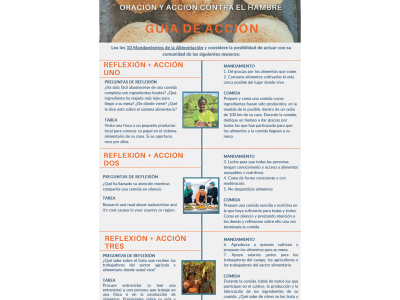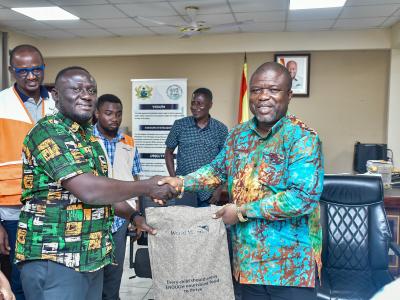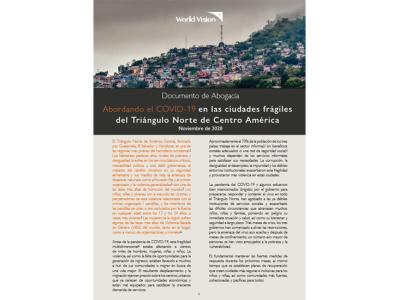publication / October 15, 2025
Right to Food: Young People’s Call to End Hunger and Malnutrition
A new generation is tackling global hunger and malnutrition. Discover how the youth-led CHAMP initiative is creating a powerful movement for change by putting young people at the forefront of research and advocacy.
publication / September 17, 2025
Les repas scolaires selon nous: Choisir notre avenir
1,235 enfants dans 13 pays partagent comment les repas scolaires influencent l’apprentissage, la santé et le sentiment d’appartenance, réclamant une meilleure alimentation, plus de dignité et une voix dans les décisions.
opinion / March 24, 2025
An essential right for the future of our generation and the planet
Salome, an ENOUGH young advocate attending this year’s Nutrition for Growth Summit, calls on world leaders to urgently address the crises related to food, nutrition, and climate change.
publication / September 22, 2025
Joint Statement on Wasting at UNGA 80 (French)
The Global Wasting Advocacy Coalition and the Global Nutrition Cluster are issuing a joint statement to call for urgent, coordinated action at UNGA 80 to address the escalating child wasting crisis - French version.
publication / September 15, 2025
Brasil: Nossa alimentação, nossa voz
No Brasil, a pesquisa sobre refeições escolares liderada por crianças da Visão Mundial — parte da campanha JÁ CHEGA — amplifica as vozes das crianças para melhorar os programas de nutrição por meio de experiências em primeira mão, coleta de dados e advocacy.
publication / September 17, 2025
Alimentação Escolar em Nossas Palavras: Escolhendo O Nosso Futuro
1.235 crianças em 13 países compartilham como as refeições escolares impactam o aprendizado, a saúde e o sentimento de pertencimento, pedindo alimentos melhores, dignidade e uma voz nas decisões.
publication / February 11, 2025
Guía de acción
Una guía de acción del Fin de Semana de Oración y Acción contra el Hambre.
publication / September 3, 2024
Hoja de Ruta Estratégica de Sostenibilidad Medioambiental y Acción Climática (ESCA)
Environmental Sustainability and Climate Action, ESCA, Roadmap, FMNR
article / September 9, 2025
World Vision Ghana Deepens Partnership with Volta Regional Minister
World Vision Ghana has pledged to collaborate more closely with the Volta Regional Minister in order to address the region's water, sanitation and hygiene challenges.
publication / December 9, 2020
Documento de Abogacía: Abordando el COVID-19 en las ciudades frágiles del Triángulo Norte de Centro América
El Triángulo Norte de América Central, formado por Guatemala, El Salvador y Honduras, es una de las regiones más pobres del hemisferio occidental.
